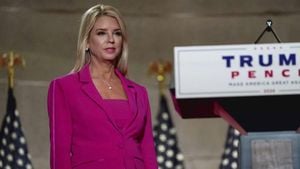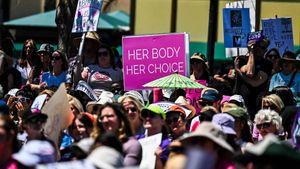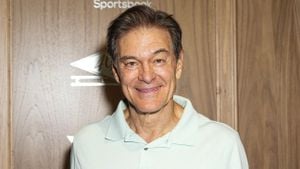Dominance and chaos are intertwining once again within the corridors of American political power, especially as President-elect Donald Trump moves to finalize his Cabinet selections for his anticipated second term. Recent weeks have been characterized by harsh scrutiny of his choices, particularly as they draw connections to Project 2025 - Trump's strategic initiative promising to reshape America’s governance, favoring loyalty over experience. This has opened the door not only for discussions on policy but also inevitable controversies surrounding the appointed figures and their suitability for their respective roles.
One significant figure stirring the pot is Sebastian Gorka, whom Trump has appointed as the senior director for counter-terrorism. Gorka's controversial history has raised eyebrows, prompting sharp criticism from former national security adviser John Bolton. Bolton, who has served through the Bush and Trump administrations, openly condemned Gorka, labeling him as "a con man" believed to be unqualified for such serious responsibilities. "He doesn’t display loyalty; he displays fealty. And that's what Trump wants," Bolton said, emphasizing fears over Gorka's capabilities and integrity.
Bolton's caustic remarks are echoed by various segments of the political spectrum, including voices within the Democratic party. Alex Floyd, spokesperson for the Democratic National Committee (DNC), characterized Gorka as "a far-right extremist" and underscored the dangers posed by his leadership within the counter-terrorism framework. This echoes concerns from across the aisle about how individuals with such polarizing records will influence key national policies.
Trump's friendship and ideological alignment with Gorka have been salient. Praising Gorka as “tireless” and integral to the America First agenda, Trump positions him as pivotal to advancing his administration's agenda. But for many, this endorsement magnifies the potential risks associated with prioritizing loyalty over competence—an issue much larger than Gorka's individual qualifications.
Meanwhile, other shocking Cabinet nominations continue to emerge from Trump's camp—each, it seems, more controversial than the last. For example, the former NFL star Scott Turner has recently been named to lead the Department of Housing and Urban Development (HUD). Trump's endorsement makes clear the importance of Turner adhering to the administration's motivations, though critics quickly point to his lack of experience as troubling for the department, which plays a pivotal role for low-income and marginal communities nationwide.
During his transition role, Vice President-elect JD Vance has been seen actively working to smooth the path for Trump's starkest appointments. Allies close to Vance indicate he is accepting of the process, viewing his position as necessary to secure the confirmations needed to assemble Trump's vision for governance. This undertaking involves engaging with other Republican senators and building coalitions to expedite the confirmations, even for the most controversial figures. Yet again, this sparks questions about vetting processes and standards for inclusion within governmental roles.
Gorka's past does not go without scrutiny. His open support for restrictive immigration policies, such as the 2017 Muslim travel ban, alongside claims against Islam as “not being a religion of peace,” marks him as inflammatory—a risk when leading counter-terrorism strategies, critics argue. Given the global tensions between various cultures and the fight against extremist ideologies, his attitudes concerning Muslim communities provoke alarm among various political analysts and civil rights advocates.
Yet, even as criticisms mount, Trump remains confident the nominations will reshape American policy effectively. He counts on loyalty from the likes of Turner and Gorka over ideological struggle, stating bluntly: "It’s all about making America great again." This sentiment resonates deeply within his core supporters, who favor boldness and direct commitment to Trump's foundational policies—the backbone of Project 2025.
The contemplative backdrop to these Cabinet selections is complex. Trump’s picks reflect both personal loyalty and established networks. Critics advocate for reforms to the political vetting processes and accountability measures to prevent individuals like Gorka from being placed within high-stakes positions of power. Such sentiments are echoed across talk shows and political discussions as individuals urge the Senate to remain firm against perceived extremism and unqualified nominees.
While Vance’s role remains pivotal as he juggles loyalties and expectations within the Senate, the question remains: how will these Cabinet selections impact not just the future of American governance, but also the fabric of civil politics? With pressure mountaineering from both sides of the aisle, the determination to push through these nominations—and what they imply for future governance—will likely lead to intense debate and potential political warfare.
Whatever the outcome, one thing is clear: the pins are being set for both dramatic shifts and equally dramatic confrontations within the Senate, even as Trump’s Cabinet becomes the focal point of rising national discourse.



